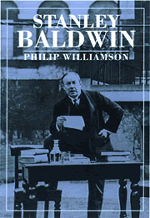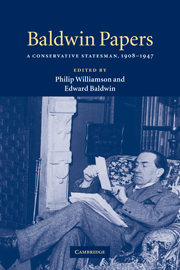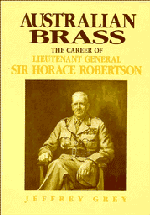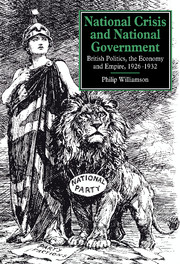Stanley Baldwin
Stanley Baldwin (1867–1947) is one of the most significant modern British politicians, but also one of the most controversial and puzzling. As Conservative leader and three times prime minister, Baldwin presided over the beginning of his party's long twentieth-century dominance. He did so in new and difficult conditions: the onset of modern democratic politics, the rise of Labour, chronic economic depression, the General Strike, persistent newspaper attacks, imperial discontent, the Abdication, and the threats from Mussolini and Hitler. This book provides an understanding of Baldwin's career, including a serious analysis of the moral and intellectual influences of his early life. Its main concerns are the investigation of a Conservative mind, and its communication with the various audiences that constituted the political nation. This is not a conventional biography, but rather an examination of the nature of political leadership, Conservative politics and 'national values'.
- A full study of Baldwin concentrating on Baldwin's ideology and political leadership
- Charts some of the most important decades of the twentieth century in Britain, embracing such topics as the rise of Labour, the General Strike, the Abdication, and the rise of Mussolini and Hitler
- Written by one of the most outstanding younger scholars in Britain, whose publications include National Crisis and National Government (1992) and an edition of Baldwin's letters
Reviews & endorsements
"...Williamson's Stanley Baldwin contains many insights and fascinating revelations." The Guardian
"...Williamson's is the best book on Baldwin yet to appear, as well as by far the most favourable." TLS
"...this is a valuable book that must be compulsory reading for any student of inter-war Britain. Baldwin the man - the complicated, complex man - emerges from its pages, full stop." The International History Review
"Williamson effectively shows that Baldwin was neither a gentrified industrialist nor a backwoods Conservative. His sympathies were broad, and his efforts to promote citizenship and self-improvement were impressive. This account is superbly researched, insightful, and elegantly written..." The Journal of Modern History
Product details
August 1999Hardback
9780521432276
408 pages
234 × 156 × 24 mm
0.79kg
15 b/w illus. 4 tables
Available
Table of Contents
- Introduction: the historical problem
- 1. Public career
- 2. Political leadership
- 3. Influences: business and ethics
- 4. Influences: community and service
- 5. Purposes and methods
- 6. Capitalism and industrial relations
- 7. Democracy and public values
- 8. Country and empire
- 9. Soul and providence
- 10. Armaments and anti-totalitarianism
- Conclusion.









